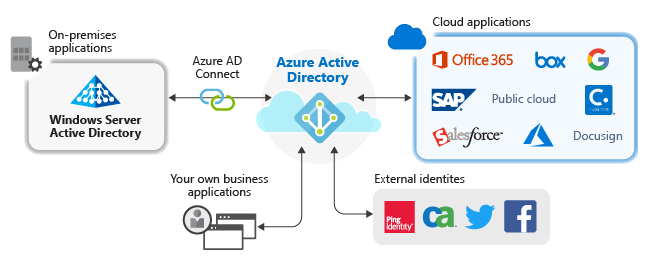Introduction
Selecting the right container solution is similar to choosing the correct tool for a specific job. Just as a craftsman picks different tools for various tasks, the selection of the appropriate container footprint for your application type is crucial for efficient and cost-effective deployment.
Consider an example use case of stateless web service that experiences unpredictable traffic surges. Deploying it within a full-scale Kubernetes cluster can be overkill. In such cases, Azure Container Apps, a serverless container service that can automatically scale to meet demands, delivers reliability and cost-efficiency.
Azure offers a range of container solutions to accommodate diverse application needs. In this blog post, we’ll explore three Azure options: Azure Container Apps, Azure Container Instances (ACI), and Azure Kubernetes Service (AKS). We’ll help you match the right container solution to your application type, whether it’s simple, stateless workloads, short-lived tasks, or complex, scalable applications.

Azure Container Apps
Overview
Azure Container Apps is a serverless container service designed for quickly deploying containerised applications. It abstracts much of the underlying infrastructure, allowing you to focus primarily on your application code. It’s ideal for stateless, simple workloads that require automatic scaling and low management overhead.
Advantages
- Simplicity: Container Apps simplifies container deployment, making it accessible to developers without extensive container orchestration knowledge.
- Serverless scaling: It offers automatic scaling, ensuring that your application can handle variable workloads efficiently. This makes it suitable for workloads with fluctuating traffic.
- Cost-Efficiency: The automatic scaling feature means you only pay for the resources you use. During periods of low traffic, you’re not overpaying for unused resources, resulting in cost savings.
Limitations
- Limited control: The abstraction of infrastructure in Azure Container Apps limits control over underlying configurations, which can be a drawback for applications that require fine-grained control. Container Apps are more suitable for simpler standalone workloads.
- Limited high availability: While Container Apps provides a level of high availability through automatic scaling, its capabilities are not as robust as fully orchestrated solutions like AKS. Applications with stringent high availability requirements may not be suitable.
Azure Container Instances (ACI)
Overview
Azure Container Instances (ACI) provides a straightforward way to run containers without the need to manage infrastructure. It’s an ideal choice for tasks, batch processing, and testing scenarios. ACI offers a quick and convenient method to run containerised applications without the need for complex orchestration.
Advantages
- Simplicity: ACI is extremely easy to use; you can run a container with just a single command.
- Rapid startup: Containers in ACI start almost instantly, making it suitable for short-lived tasks and applications that need to scale quickly.
- Scaling: ACI allows you to start and stop containers rapidly, making it suitable for tasks that need to scale quickly and efficiently.
Limitations
- Limited scaling options: While ACI allows you to start and stop containers rapidly, scaling multiple containers may require manual effort compared to orchestrated solutions. It’s not as suitable for large-scale applications with fluctuating traffic.
- Lack of advanced orchestration: ACI is not a fully-fledged orchestration platform like Kubernetes. It doesn’t provide advanced orchestration features for complex application scenarios that involve multiple containers working together.
- Storage limitations: ACI does not offer native support for persistent storage. You would need to integrate with other Azure services to manage data persistence.
Azure Kubernetes Service (AKS)
Overview
Azure Kubernetes Service (AKS) is a fully managed Kubernetes service for deploying, managing, and scaling containerised applications using Kubernetes. It’s designed for complex, scalable applications with advanced orchestration requirements.
Advantages
- Robust orchestration and high availability: AKS provides comprehensive Kubernetes orchestration, allowing you to deploy, manage, and scale complex, multi-container applications. It offers automated scaling, load balancing, redundancy, and failover mechanisms, ensuring high application resilience and availability.
- Advanced networking and storage: AKS supports advanced networking configurations, making it suitable for applications with complex networking requirements and allowing fine-tuned control over network configurations. Additionally, it provides native support for persistent storage through Kubernetes’ storage primitives, enabling you to configure persistent volumes for data that survives container restarts.
- Robust ecosystem: AKS seamlessly integrates with a vast ecosystem of tools, resources, and third-party extensions, creating a comprehensive container management solution. Being built on Kubernetes, AKS also benefits from the large and active Kubernetes community, providing access to a wealth of resources, documentation, and support from both the community and Microsoft.
Limitations
- Complexity: The comprehensive orchestration capabilities of AKS may introduce complexity that isn’t needed for simpler applications. It’s best suited for workloads that demand advanced orchestration and high availability.
- Higher operational overhead: Managing an AKS cluster involves more operational tasks, such as configuring Kubernetes features, patching, and monitoring, which can increase the operational workload.
- Steep learning curve: Setting up and managing an AKS cluster effectively requires familiarity with Kubernetes concepts and configurations. This can be a significant challenge for users new to Kubernetes.
Conclusion
Choosing the right container solution is a critical step in optimising your application’s performance, scalability, and cost-efficiency. Each of these Azure offerings has its unique strengths, and understanding when and how to leverage them is key.
Should you have further questions or require more information about Azure container solutions or any other related topics, don’t hesitate to reach out to contact us, we’d love to chat. We’re here to assist you in making the most of Azure’s container offerings and guiding you toward the best-fit solution for your containerised applications.






